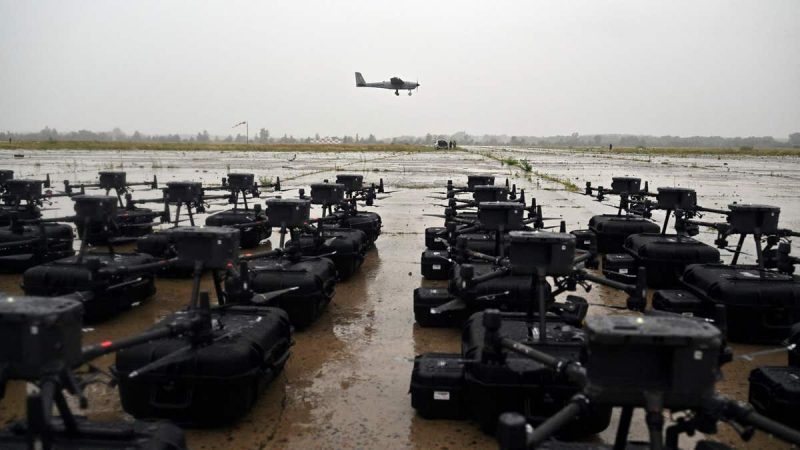The evolution of warfare has regularly been shaped by technological advancements, and with the rise of unmanned aerial vehicles (UAVs), or drones, this trend has extended into the realm of modern warfare. The United States, like other major military powers, finds itself in a state of urgency as it grapples with the strategic implications of drones on the battlefield. As these mechanical eyes in the sky redefine the nature of conflict, policymakers and military personnel are scrutinizing the ways in which drones are altering the landscape of war.
One of the primary concerns raised by the proliferation of drones is the challenge they pose to traditional defense systems. Unlike conventional aircraft, drones offer enhanced maneuverability, stealth capabilities, and autonomy. This enables them to bypass enemy defenses, conduct targeted strikes with precision, and gather critical intelligence without putting human lives at risk. The US military, accustomed to conventional strategies, must adapt its tactics to counter this new threat effectively.
Moreover, the affordability and accessibility of drones have democratized warfare, allowing non-state actors and rogue nations to acquire and deploy them in conflict zones. This has raised the stakes for national security and has blurred the lines between conventional and asymmetric warfare. The US government faces the daunting task of developing policies and regulations to govern the use of drones, preventing them from falling into the wrong hands while maintaining its technological edge.
Additionally, the ethical implications of drone warfare have sparked intense debates within the international community. The ability to conduct targeted killings from afar, often without clear accountability or due process, has raised concerns about the erosion of human rights and the rule of law. The US, as a global leader, must navigate this ethical minefield carefully, balancing national security interests with respect for international norms and human rights.
In response to these challenges, the US has ramped up its research and development efforts in drone technology, investing heavily in the creation of autonomous systems and artificial intelligence to stay ahead of potential adversaries. However, as the future of warfare becomes increasingly automated and digitized, policymakers must grapple with complex questions about the ethical, legal, and strategic implications of this shift.
In conclusion, the emergence of drones as a game-changing technology in modern warfare has forced the US and other military powers to rethink their traditional approaches to conflict. As drones continue to shape the landscape of war, the US must adapt to this new reality by developing innovative strategies, fostering international cooperation, and upholding ethical standards. Only by embracing this technological evolution with foresight and wisdom can the US navigate the challenges and opportunities that lie ahead in the future of warfare.




























